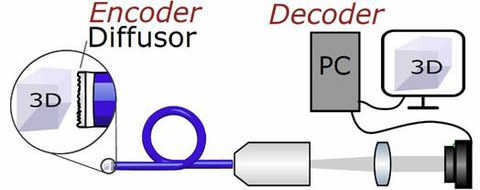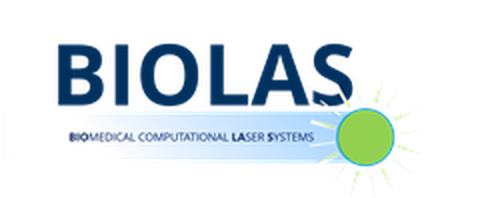Minimally invasive 3D imaging using a diffuser and deep learning
The aim of the project is to fundamentally investigate a novel technique for minimally invasive endoscopy. Conventional fiber endoscopes are based on the transmission of intensity patterns through imaging wave-guides and on imaging optics with a fixed focal distance for 2D imaging.
A paradigm shift towards minimally invasive, single-shot, 3D measurements will be pursued by substituting the imaging optics with a diffuser plate.
The diffuse scattering of light is used to code 3D object information in speckle patterns and relay this information through imaging wave-guides. The decoding will be realized in an advantageous manner by neural networks and deep learning.
Endoscopy is of high importance for deep-tissue in-vivo examinations in biological research for instance in neuro surgery. Brain biopsies are performed to enable ex-vivo auto fluorescence microscopy for tumor classification.
The time delay between biopsy, measurement and diagnosis requires multiple surgeries. A miniaturized endoscope integrated into stereo tactile needles can enable an in-vivo-pathology by 3D auto fluorescence mapping.
Staff: J. Lich, R. Kuschmierz
Period: 04/21-03/24


